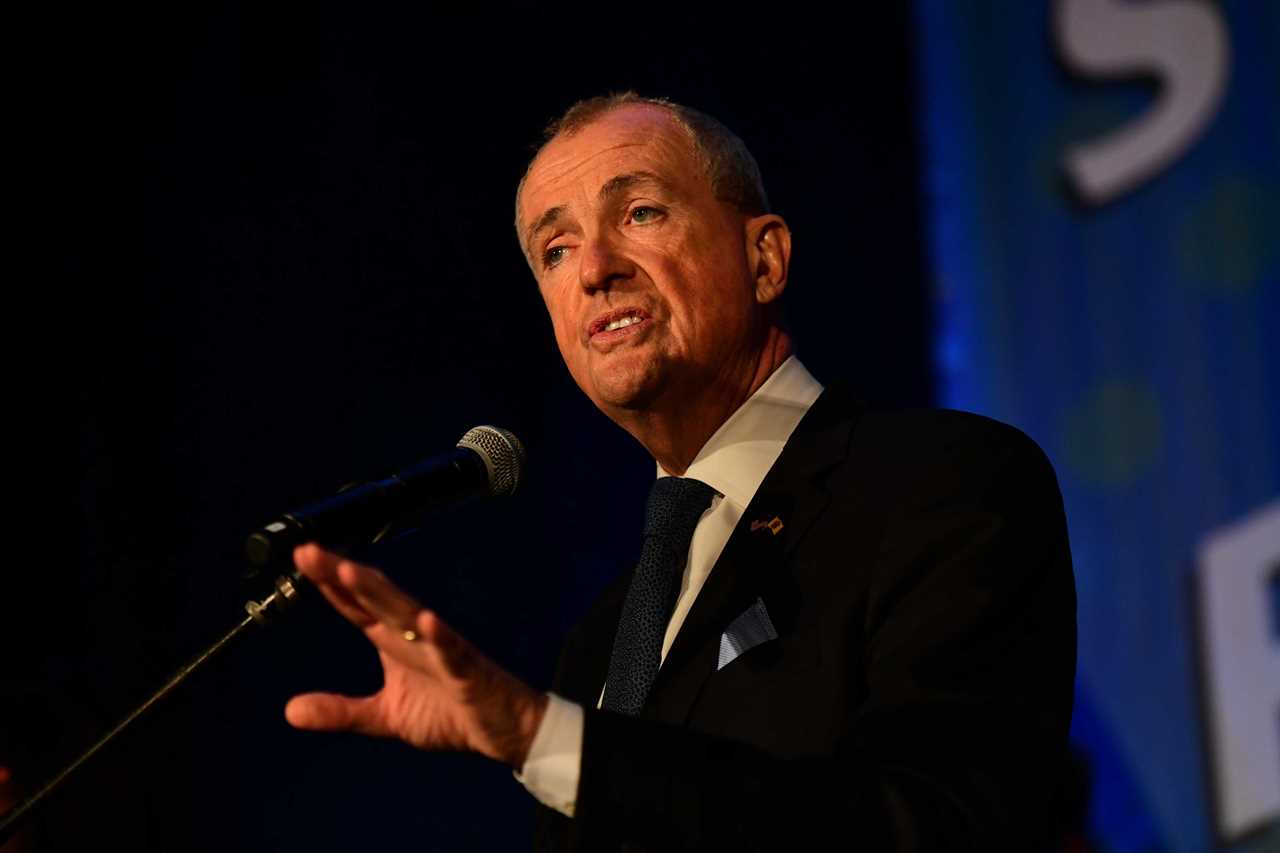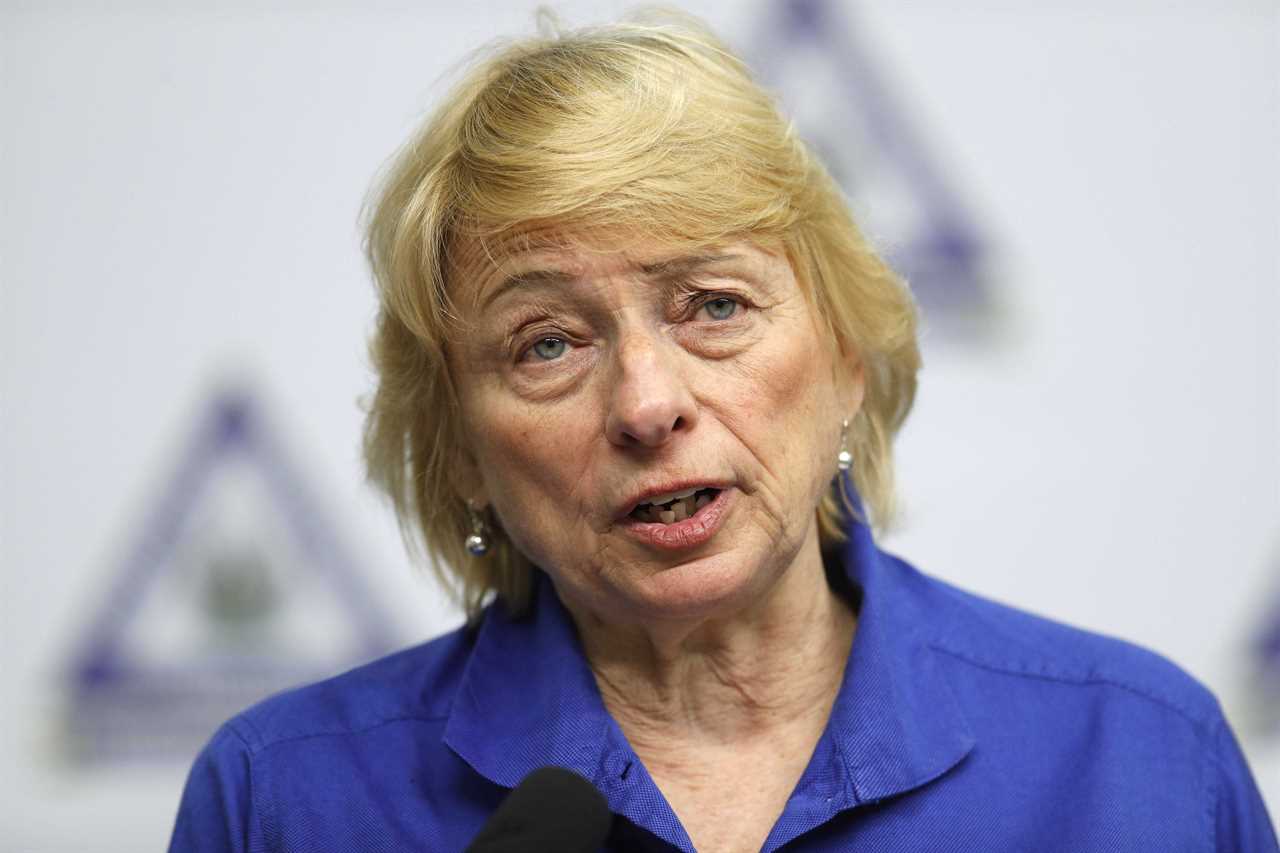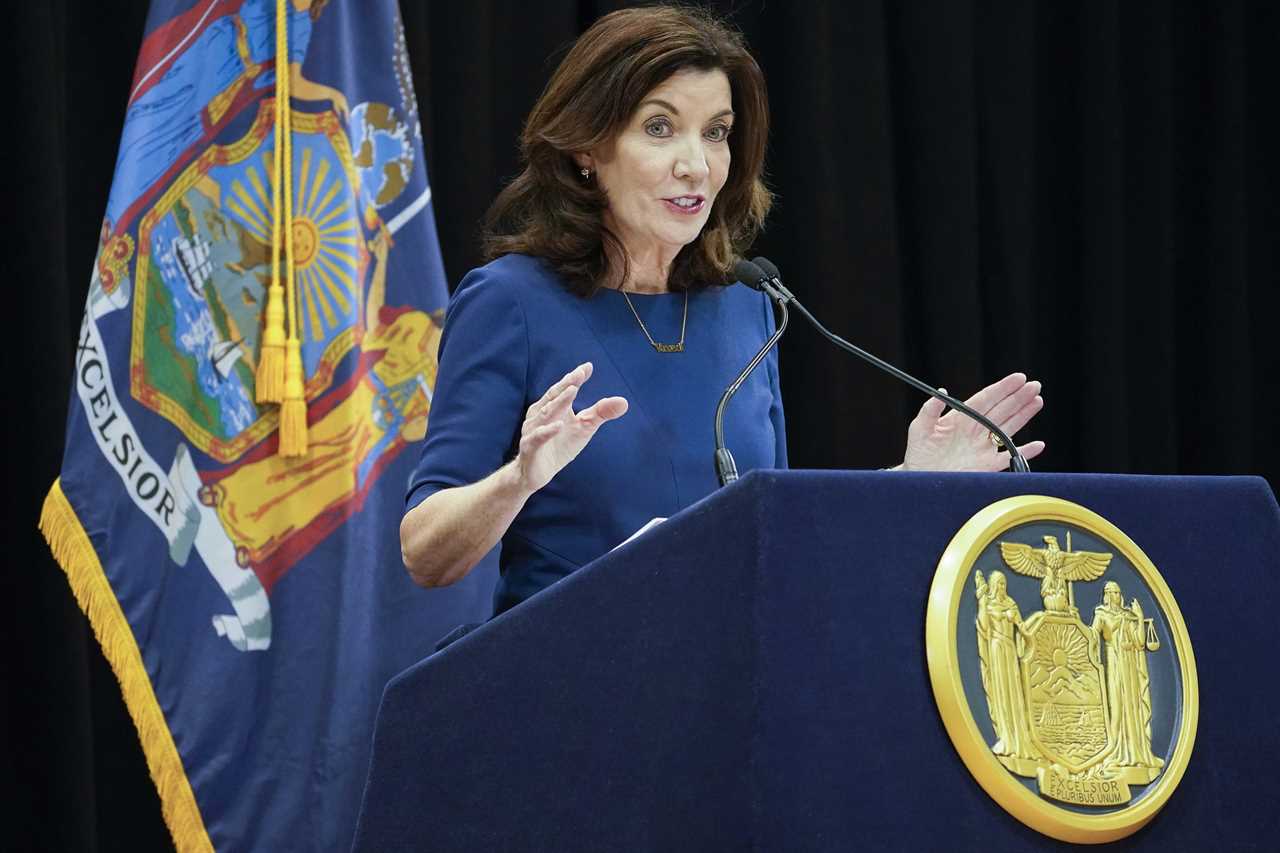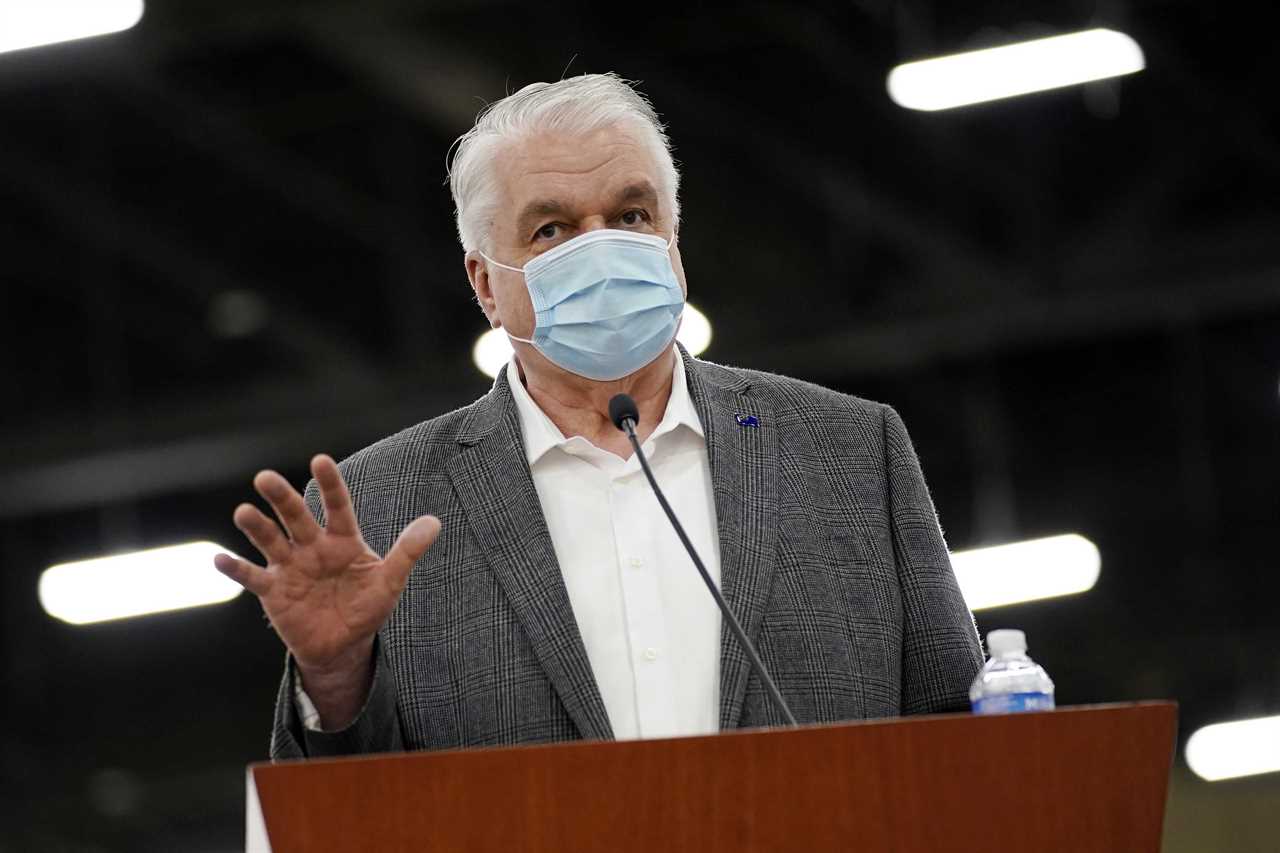
NEW ORLEANS — Democratic governors were already barreling straight into a perilous midterm election. But a building winter Covid surge is putting many of them in a greater bind.
The party’s defeat last month in Virginia — and closer-than-expected victory in New Jersey — has many Democrats searching for an off-ramp to the pandemic that allows them to sell a brighter future to voters next November.
But, at the same time, attendees here at the Democratic Governors Association’s winter meeting were nodding to voters’ frustrations with the enduring pandemic and its accompanying hardships, a potentially more contagious variant is emerging, and some blue states have reimposed mask mandates going into the holidays.
Asked in an interview about his November close call, New Jersey Gov. Phil Murphy attributed it to “a lot of folks who are frustrated, is my guess.”
In his most candid assessment of his 3-point victory to date, Murphy said some New Jerseyans “feel like government is not connecting with them. They’re sick of masks, being told what to do in terms of vaccines, probably not thrilled with what they sense is going on in Washington, they may have lost a job or a business that went bust — or a loved one, worse yet.”
Murphy — who, it was announced here, will lead the DGA in 2023 — said that his political operation would be launching a series of focus groups in the coming week to draw deeper lessons on his narrow victory in November.
For many Democrats, the answer is already apparent: The start of the pandemic may have sent governors’ approval ratings shooting through the roof, but its durability is an existential threat to their power across the map, from traditional battleground states to even reliably Democratic territory like Virginia and New Jersey.
According to interviews with a half-dozen Democratic governors at and leading up to the conference, along with conversations with senior party aides and consultants, the party needs to find a message that acknowledges voters’ exasperation with the virus and its economic and societal impacts.
“I think we have to recognize and acknowledge that families have had a tough time over the last two years, both health-wise — whether it is or isn't from Covid, whether it's mental health — and economically,” North Carolina Gov. Roy Cooper, the new chair of the DGA, told reporters.
A whole new job
Of the 13 Democratic governors seeking reelection in 2022, all were first elected in 2018 or assumed office mid-pandemic — which means Covid has underpinned much of what they’ve done in office since they were elected.
“When I ran for office and got elected, for the first couple months it wasn’t even on the radar,” said Nevada Gov. Steve Sisolak, who is one of Democrats’ most vulnerable incumbents next year. “And then along it came. Candidly, it factors into about every decision I make,” he said, listing everything from public appearance decisions to allocating money to boost the state economy.
“For the most part, public health is an executive administration responsibility,” Wisconsin Gov. Tony Evers, another vulnerable Democrat first elected in 2018, echoed. “And so we all have become somewhat expert in that area, even though we may not have expected to be.”
The pandemic derailed other policy goals some had lined up. Instead of a full four-year term to try to push through and advocate for their agendas, governors facing reelection next year got a little over a year on the job before they were confronting a once-in-a-generation pandemic.

“It clearly impacted our roles and our ability to get a lot of other things done that we wanted to get done,” said Maine Gov. Janet Mills. “It was climate change, health care, education — we've done a lot along those lines as well. But it kind of interrupted things pretty drastically, dramatically, 22 months ago.”
“Nobody ran for governor thinking, ‘well, one day I'll be the governor who shuts down graduations, weddings, funerals, 4th of July parades, Labor Day picnics, closes bars, because of the highly transmissible virus out there,’” continued Mills, who faces a likely rematch with former GOP Gov. Paul LePage next year. “And yet, most of us had to do some measure of that kind of thing … which is very hard.”
And Washington Gov. Jay Inslee, a former DGA chair who won reelection to a third term last year, noted the extra weight each decision carried. “I’ve had some emergencies: We had a mudslide, we had a bridge on our I-5 that went out,” he said. “Those were like one week, right? This has been every day for two years. And there's thousands of lives rather than tens that are at stake.”
They universally noted that the pandemic itself was not over. Each repeatedly stressed the importance of Americans getting vaccinated and pledged that their state would not see a retrenchment back toward some of the darkest days of the winter of 2020.
But there’s not agreement on how to accomplish that. A pair of Democratic governors who are facing reelection next year have expressed uneasiness with President Joe Biden’s vaccine mandate on private employers: Michigan’s Gretchen Whitmer and Kansas’ Laura Kelly. Kelly signed a bill that would require exemptions to mandates in her state, and Whitmer expressed concerns, noting that she hadn’t proposed one and that the state would lose employees.
(Kelly did not attend the DGA meeting, and a spokesperson for Whitmer declined to make her available for an interview there, citing a packed schedule.)
There are also noticeable differences among Democratic governors on how to manage the second year of the pandemic, outside of vaccinations. They swore off wide-scale shutdowns, but some states have begun to reinstitute mask mandates in some form, while other governors say they won’t reinstitute one.
In Nevada, Sisolak reimposed a mask mandate in most of the state’s counties in July. “We’ve got a lot of tourists coming in here that kind of let their guard down,” Sisolak, who is also running again in 2022, said. “The saying is, ‘What happens in Vegas stays in Vegas.’ But I don’t want Covid to stay.”

And New York Gov. Kathy Hochul, who is running for her first full term next year, instituted a new mandate that began this week that required masks for all individuals age 2 or older in all indoor public settings — except for businesses that only admit vaccinated customers.
Hochul has insisted that stricter Covid measures were always a possibility. She told reporters in New York on Friday that, “while you may not feel it much in New York City,” hospitals upstate are still in crisis with sick and dying unvaccinated individuals.
”All over the state they’re asking for help,” she said. “I said, ‘I’ll give them air cover.’ I will give them protection to have a mandate that’s based on science, data and what we see coming, despite the fact that this was completely avoidable.”
2022 on the horizon
Most of the governorships Democrats are defending next November are in states more politically competitive than New York. And those governors on the ballot in 2022 acknowledge that their fates are tied to how they guided their state through the pandemic — and, perhaps more importantly, whether voters can see a path to its end.
“I will be talking about it a lot,” said Evers, the Wisconsin governor. “And I'll be talking about it in terms of not only what we've accomplished ... but as we roll into the next election, I'll still be encouraging people to do the right thing on mitigation and vaccination.”
Cooper, the new DGA chair, said that he believed that voters would reward Democratic governors who guided their states through the pandemic, and Democrats are banking on being able to ride a strong economic bounceback into next year’s election.
“It'll play a role in that people will see the competence of Democratic governors, and I think they will understand that we are trying to focus on the economy and getting people back on their feet,” he said.
But they’re also aware that they are likely to face attacks from Republicans over their handling of the pandemic, and the economic aftereffects of it.

“I think it's definitely going to be something that they're going to try to use to make a wedge,” Sisolak said. “It's really, really easy to be a Monday morning quarterback. … They have no plans, what they would do differently. They just want to complain about what I did.”
The two Republican governors facing reelection in top tier of gubernatorial races next year — Georgia’s Brian Kemp and Florida’s Ron DeSantis — took a comparatively hands-off approach, despite often withering criticism from public health experts, and have signaled they plan to run on that in 2022.
“I know this is gonna be a tough reelect, but we've got a great record to run on,” Kemp, who is also facing a primary challenge from former Sen. David Perdue, said in a recent interview with WXIA-TV. “I've been in the fight on these issues — to open our economy, get our kids back in the classroom, keep our churches open …”
Some Democrats have sought to cast DeSantis, in particular, as a foil to Democratic management of the pandemic, a role he’s eagerly embraced. “Don’t Florida our Virginia,” one ad from former Virginia Gov. Terry McAuliffe’s unsuccessful comeback bid earlier this year warned.
The pandemic did, however, at least play a role in Massachusetts Gov. Charlie Baker not seeking a third term. When the moderate Republican bowed out of the 2022 contest, he said repeatedly that he and Lt. Gov. Karyn Polito, who declined to run for reelection or seek the top job, wanted to focus on managing the pandemic rather than the “grudge matches political campaigns can devolve into.”
“We want 2022 here in Massachusetts to be about work and about continuing to keep our kids in school, keep people safe, reopen our economy,” Baker said, in response to a POLITICO reporter’s question earlier this month. “Not about political campaigns and election sloganeering.”
And while opposing lockdowns and various types of mandates were particularly motivating to some Republican voters since the start of the pandemic, the GOP has now zeroed in on the economy as one of their leading messages heading into the new year.
As inflation continues to spike, Republicans have been hitting Democrats in Washington and across the country on it. “Inflation Rises Again: Joe Biden and Democrat Governors Are To Blame,” one recent press release from the Republican Governors Association declared, hammering away on spending out of Washington and energy policy.
With a new set of elections approaching, Murphy says there are several lessons Democratic incumbents can take away from his narrow win in New Jersey last month.
“Do two things: Do right by Covid. And I know all these folks, and they do that already, but keep making the decisions not based on the politics but based on the facts of the science and of the data,” he said. “And secondly, make sure you're at the kitchen table of working families in your state, making sure they understand both what you're doing as a governor, and what the president and Congress are doing nationally translates into their evening discussion.”
Anna Gronewold, Lisa Kashinsky and Shannon Young contributed to this report.
----------------------------------------
By: Zach Montellaro
Title: ‘They’re sick of masks’: Democratic governors fight Covid fatigue
Sourced From: www.politico.com/news/2021/12/15/democratic-governors-covid-fatigue-524425
Published Date: Wed, 15 Dec 2021 04:31:45 EST
Did you miss our previous article...
https://consumernewsnetwork.com/politics-us/-the-problem-with-the-new-jfk-document-release






